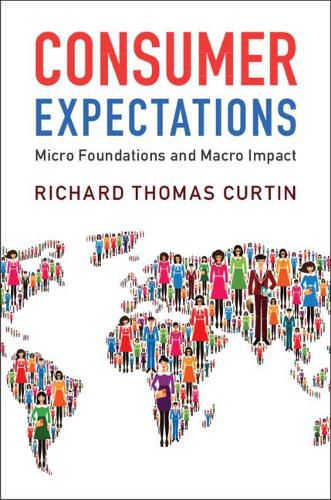Readings Newsletter
Become a Readings Member to make your shopping experience even easier.
Sign in or sign up for free!
You’re not far away from qualifying for FREE standard shipping within Australia
You’ve qualified for FREE standard shipping within Australia
The cart is loading…






Richard Curtin has directed the University of Michigan’s consumer sentiment surveys for more than four decades. His analyses of recent trends in consumer expectations are regularly covered in the worldwide press. In this book, Curtin presents a new theory of expectations. Whereas conventional theories presume that consumers play a passive role in the macro economy, simply reacting to current trends in incomes, prices, and interest rates, Curtin proposes a new empirically consistent theory. He argues that expectations are formed by an automatic process that utilizes conscious and nonconscious processes, passion and reason, information from public and private sources, and social networks. Consumers ultimately reach a decision that serves both the micro decision needs of individuals and reflects the common influence of the macro environment. Drawing on empirical observations, Curtin not only demonstrates the importance of consumer sentiment, but also how it can foreshadow the cyclical turning points in the economy.
$9.00 standard shipping within Australia
FREE standard shipping within Australia for orders over $100.00
Express & International shipping calculated at checkout
Richard Curtin has directed the University of Michigan’s consumer sentiment surveys for more than four decades. His analyses of recent trends in consumer expectations are regularly covered in the worldwide press. In this book, Curtin presents a new theory of expectations. Whereas conventional theories presume that consumers play a passive role in the macro economy, simply reacting to current trends in incomes, prices, and interest rates, Curtin proposes a new empirically consistent theory. He argues that expectations are formed by an automatic process that utilizes conscious and nonconscious processes, passion and reason, information from public and private sources, and social networks. Consumers ultimately reach a decision that serves both the micro decision needs of individuals and reflects the common influence of the macro environment. Drawing on empirical observations, Curtin not only demonstrates the importance of consumer sentiment, but also how it can foreshadow the cyclical turning points in the economy.